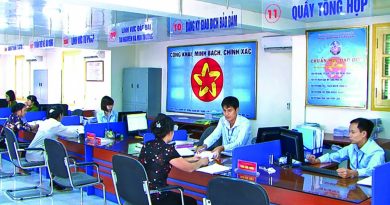Amended law alters funding landscape
The Vietnamese National Assembly has adopted the new Law on Investment, with new rules in favour of foreign investment, including from the US, which is expected to surge in Vietnam in the time to come.
Huynh Cong Tam, senior associate at US-backed law firm Russin & Vecchi, analyses the new law, which reflects Vietnam’s great efforts to boost its appeal for this type of funding.
The Law on Investment 2014 will be replaced after being in effect for five years, during which time it has helped to shape the current positive investment environment. On June 17, the Vietnamese National Assembly passed the new Law on Investment No.61/2020/QH14, effective from January 1 next year.
During its term, the investment environment was more supportive of investors. Foreign investment in which United States investors have been highly visible was significantly benefited. In 2019 alone, total foreign direct investment reached an impressive milestone. In that year, total foreign investment capital registered in Vietnam (through registered capital for new projects, additional capital for expanded projects, and capital for mergers and acquisitions) reached $38.02 billion, the highest ever annual level.
According to the Foreign Investment Agency under the Ministry of Planning and Investment, despite the COVID-19 pandemic, as of May 20 the total registered investment capital by non-nationals reached $13.89 billion, equal to 83 per cent of the same period in 2019. Nearly half of the total capital contributed ($6.7 billion) is for new direct investment projects.
Overseas investors poured money into 18 fields in 2020, of which the processing and manufacturing industries led with total investment capital of $6.88 billion, accounting for 49.5 per cent of the total. Electricity production, especially renewable energy, and distribution ranked second with total investment capital of $3.92 billion.
While the majority of foreign investors still come from Asia, those from the United States also increased their activity in Vietnam. According to a recent report from the Ministry of Foreign Affairs, since the Vietnam-US Bilateral Trade Agreement came into effect in 2001, direct funding by US investors increased rapidly at an average annual increase of 27 per cent per year (compared to about 3 per cent per year from 1996-2001).
During the first four months of 2020, the total value of the investment capital from US groups reached $94.08 million. This figure does not reflect the real picture as many US investors have put money into Vietnam through investment vehicles incorporated in other countries. US businesses have accelerated their long-term investments in Vietnam.
With the rapid evolution of activities, the Law on Investment 2014 has not been able to keep up. The new Law on Investment creates a legal framework to attract further foreign investment, especially after Vietnam signed the Comprehensive and Progressive Agreement for Trans-Pacific Partnership and the EU-Vietnam Free Trade Agreement.
Another motivation of the new Law on Investment is that Vietnam needs to complete its legal framework in order to enhance its competitiveness vis-à-vis other countries in the region and to attract the investment capital that is trending away from China.
The new Law on Investment maintains the fundamental principle that domestic and foreign investors can continue to carry out investment in industries and trades which are not prohibited. In that connection, the new Law on Investment reduces to 22 the conditional sectors. For the conditional sectors, investors are required to meet specific statutory conditions.
The new Law on Investment also includes greater transparency; for example, it provides specific timelines for competent authorities to review and approve investment dossiers of the investors, principles and conditions applicable to land use rights auctions, and bidding for projects.
It also clarifies regulations which have been unclear and/or have caused difficulties and obstacles in the implementation process, such as certain regulations on procedures, capital, and onshore and offshore activities.
The new Law on Investment also simplifies some procedures. For example, it abolishes the requirement that projects with a capital of VND5 trillion ($217.4 million) or more be “pre-approved” by the prime minister; licensing of golf course projects is now under the authority of provincial peoples’ committees (instead of the prime minister’s authority as was the case under the Law on Investment 2014).
Although there were suggestions to abolish the requirement that a foreign investor has a project and obtains an investment registration certificate (IRC) before it could establish an enterprise to carry out the project, the new Law on Investment retains the IRC requirement.
However, and for the first time, the new Law on Investment will allow certain foreign investors to form a company without first obtaining an IRC. Small or medium-sized innovative startup companies or investment funds will benefit. These new provisions are expected to create a favourable legal mechanism for foreign investors to set up innovative startup businesses in fintech, shared technology businesses, and other creative startup projects.
The new law also introduces a new concept called “market access conditions for foreign investors”. Accordingly, the Vietnamese government is permitted to promulgate a list of industries and trades in which they will receive restricted market access. Such a list will specify business activities without market access and business activities with conditional market access.
Lawmakers expect the list to help Vietnam to improve the quality and efficiency of foreign investment. As it is new, the specific “market access conditions for foreign investors”, however, needs time to be created. Vietnam’s commitments under several international treaties will create the necessary guidelines.
One condition is not new. It is regulated by other laws but now appears in the new Law on Investment. Foreign investors wanting to form a company, contribute capital, purchase shares of companies which have a land use rights certificate and/or are located on border areas and communes, wards and townships, coastal communes, or areas which affect national defence, will need an investment policy approval before proceeding with the company formation or the proposed acquisition.
This is intended to manage activities which may interfere with national defence and security. It will permit the Vietnamese government to prevent the transfer of projects to foreign investors in sensitive circumstances.
The new Law on Investment is also expected to resolve difficulties of real estate companies relating to procedures of auction, bidding, and policy decisions for projects involving land use rights as well as to remove overlapping and inconsistent regulations in the application process among relevant laws/regulations.
Specifically, the new law requires that the selection of an investor to implement projects through auction of land use rights, and bidding for selection must be carried out after a policy decision for a relevant project has been made. In some specific cases, in respect of projects subject to the procedures of policy decisions, the new Law on Investment provides a flexibility by allowing competent authorities issue an investment policy decision and also approve the investor to implement a project without the need for going through the process of auction of land use rights or bidding for selection later.
As a matter of procedure, the implementation of these new regulations requires the government and ministries to provide detailed guidance. In addition, provisions under relevant laws, such as the Law on Housing and the Law on Real Estate Business, will need to be amended in consistency with relevant regulations of the new Law on Investment.
Other forms of support have also introduced special investment incentives; tax incentives; support for development of certain projects which will have a large impact on socio-economic development; support for training and development of human resources; and certain types of credit support.
These changes are welcomed by both investors and the public. The new Law on Investment is expected to increase the level of overseas investment and to add momentum to Vietnam’s economic growth.
Source: VIR





